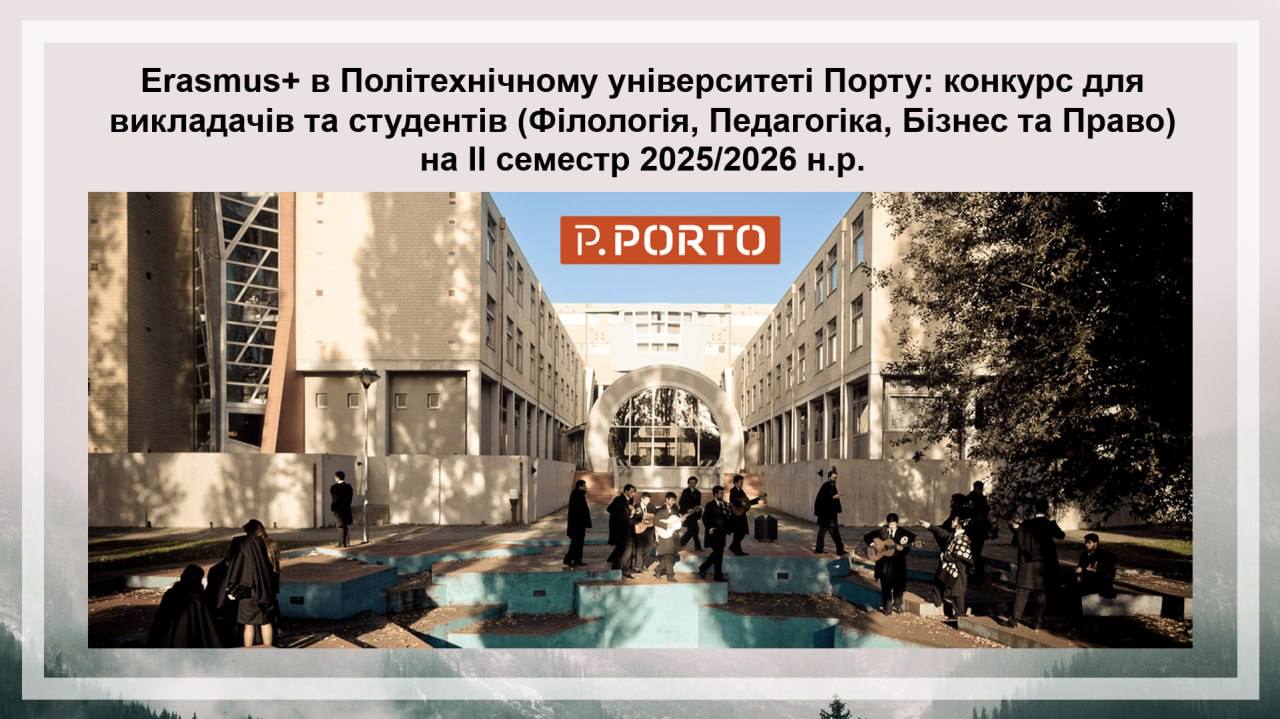On January 26, members of the students’ scientific club “Philology” led by Candidate of Philology, Associate Professor of the Department of Germanic Philology and Translation at National University “Yuri Kondratyuk Poltava Polytechnic” Anna Pavelieva, held the first sitting in the new calendar year, dedicated to the structural and semantic analysis of phraseological units in the literary text of Mykola Vasyliovych Gogol’s short-story “Evening on the eve of Ivan Kupala” and methods of their translation into English. Young literary critics considered phraseology at the semantic level (according to M. M. Shanskyi’s classification), analyzed their groups by origin (according to the classification of I. P. Yushchuk, M. A. Zhovtobriukh and B. M. Kulyk) and by connotation; discussed in detail phraseological and non-phraseological methods of translating phraseological units into English used by well-known translators of Mykola Gogol’s works, Richard Piver and Larysa Volokhonska.
“With the help of language means Mykola Gogol in his first prose cycles “Evenings on a farm near Dykanka” and “Myrhorod” characterizes the characters of the short-stories, the author’s language, the language of beekeeper Pan’ko-the-Redhaired and deacon of Dykanka Church Foma Hryhorovych differ significantly, acting as a stylistic device and separating the “modern” Myrhorod stories from the “ancient” epics of the Dykanka cycle and stories about the past. The stories told by the deacon – “Evening on the eve of Ivan Kupala”, “The Lost Letter” and “A Bewitched Place” are epics, the action of which took place in mythological times, leading to the use of many phraseologies that “age” the story and at the same time perform verbal expressive means that help not only to reveal the figures of key characters, but also to express feelings (surprise, anxiety, fear, admiration, hexes and curses, reproaches and complaints, etc.) and a means of humor (Gogol’s laughter).
In the first collections of Mykola Vasyliovych Gogol, the widest and most diverse phraseological units are presented in the “Evening on the eve of Ivan Kupala”. There are 158 phrases among the 436 found in Gogol’s “Ukrainian” novels. The spatio-temporal characteristics of Gogol’s works are closely connected with linguistic means, and since the chronotopic dominants of the above stories became mystical time and mystical space, these works are full of phraseology of biblical-evangelical and demonological semantics,” – commented the head of the club, Candidate of Philology, Associate Professor of the Department of Germanic Philology and Translation of Poltava Polytechnic Anna Pavelieva.
















In general, the phraseological units in Mykola Gogol’s novel “The Evening on the Eve of Ivan Kupala” can be divided into three types: those of demonological color; those with biblical-evangelical semantics; those that are spatial and conversational-expressive (which, in turn, are divided into those that come from: a) folk art; b) historical realities; c) everyday life; d) the production and professional sphere; e) observations of the natural world). Based on V. V. Vynogradov’s classification, supplemented by M. M. Shanskyi, as well as taking into account the origin and scope of phraseological units in the text of M. V. Gogol’s novel “Evening on the eve of Ivan Kupala”, at the semantic level they can be divided into 4 groups:
- phraseological expressions (39% or 62 units);
- phraseological merging (22% or 34 units);
- phraseological combinations (21% or 33 units);
- phraseological unities (18% or 29 units).
“Phraseological units in Gogol’s stories are vivid, figurative expressions that reflect both the national color and the historical epoch, contain realities and untranslatable components, which makes them interesting and at the same time difficult to translate into English. 158 phraseological units in the work we are studying are translated using four main methods of translation: literal translation (calquing); descriptive translation; phraseological analogue; phraseological equivalent. The small number of phraseological equivalents is due to the fact that in two not closely related languages there are very few phraseological equivalents. Phraseological analogues are a little easier to find, especially when it comes to commonly used phrases. So, as we can see, the translators R. Piver and L. Volokhonska most often resorted to the methods of calquing and descriptive translation, as the structure of a significant part of phraseological units – word combinations, phrases and sentences for which it is difficult to find analogues or equivalents,” – told the regular member of the club, a student of 035 “Philology” specialty of the Faculty of Humanities Maryna Slyusarenko.
Previously, the club members studied the life and career of William Somerset Maugham, researched modern educational technologies, presented translation studies of the “father” of a classic detective and author of adventure novels, studied the creative heritage of Lake poets, exchanged life hacks on translating advertising slogans from global brands, researched a satirical novel by Mikhail Bulgakov and discussed the creative heritage of Polish science fiction writer.
It should be recalled that sittings of the students’ scientific club “Philology” are held at the Faculty of Humanities of Poltava Polytechnic at least once a month. The next meeting of the club, timed to the 220th anniversary of the birth of the famous French novelist Victor Marie Hugo, will be held in February 2022. Students, schoolchildren of Poltava and the region, interested in the problems of literary studies, linguistics and translation studies, connoisseurs of colorful literary words and all interested are invited to participate.
The activities of the students’ scientific club “Philology”, plans and reports of the club can be found here.
For additional information on the time and place of the scientific club sittings, please contact the Department of Germanic Philology and Translation (Room 310-C) or directly the head of the club – Anna Kostiantynivna Pavelieva by phone: (095) 91-08-192.
Media Center of
National University “Yuri Kondratyuk Poltava Polytechnic”



